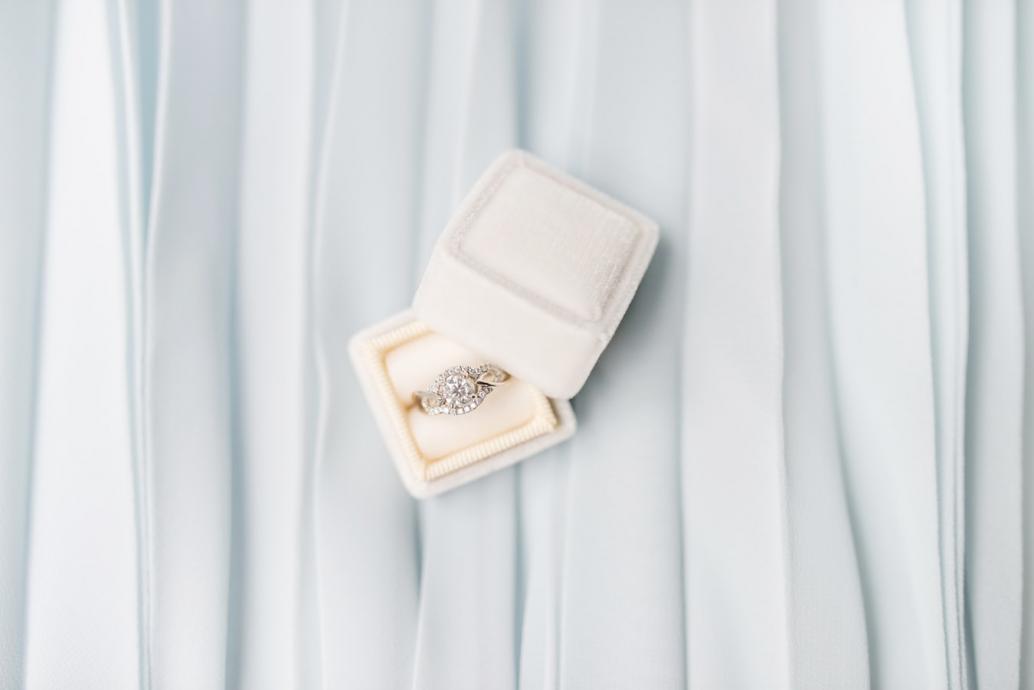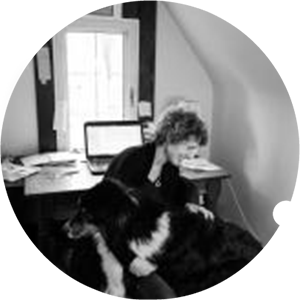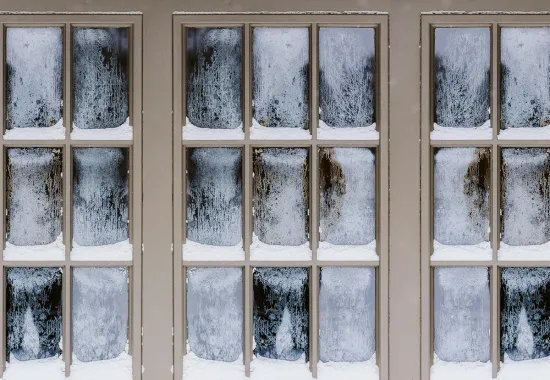You Were the One
The man was a godsend. Handsome, well-to-do, but most of all, how he doted on her. How he drank her in with his every gesture—his eyes on her pale face, his fingers, slightly fretful, feminine in their tapering, just so lightly caressing her elbow or the side of her thigh. The mother, dying, thanked God-thanked Jesus and Allah and Ganesh and all the other deities she didn’t believe in no matter how hard she tried to, because after all, she was dying, and she wanted to believe in something other than her own looming death—for this lovely man, this man who would take care of her Isa after she, and then, eventually, inevitably Ed too was gone. Ed: sitting there with his nightly beer, the scars along running up his neck from under his shirt, where they crisscrossed his chest, an entire map of scars, a constellation of miniature mountain ranges etched across his skin. His bad ticker. And yet it was she, the mother, the healthy one, who was dying.
Danny Zelinski. That was the man’s name, this man whom Isa had seemingly pulled out of a hat, the way he had just dropped out of the sky like that, like a meteorite in August. Mixed metaphors. How Isa hated it when her mother rambled on like that, confusing her syntax, piling up the metaphors-or were they similes? She, Frances, didn’t care. Nor did she understand why her youngest daughter-there were two who had come before her and two more, twin boys, after-had come out so fretful, so plain and cranky and vulnerable, a child who didn’t seem to possess the necessary layers of skin. And now she was in her late thirties, what used to be called an old maid but, like the mentally retarded and margarine, was no longer in the lexicon, you couldn’t say such things out loud. But wait: you’re rambling on again, Frances, you’re rambling…you’re confused. Only she was saying it to herself, and not out loud at all. Across the room, on the far side of the coffee table, Isa sat in a brightly colored flowered dress, a dress like a picnic table, and flat sandals, her pale soft blonde hair parted on the side and cut short, like a school girl’s. Her haunches spread beneath her: those wide peasant hips, generation after generation of Swedish peasants, fishermen, farmers, drunks and now this, a fully-vetted, fully-American daughter just this side of middle aged, only unlike her sturdier siblings, this one is a poet.
"She’d found comfort, and then something of a calling, in poetry."
A poet. For God’s sake, a poet. “The poetry lady” is what she calls herself in her adopted hometown, in Northern California, because it was inevitable, in retrospect, that Isa wouldn’t stay in Chicago, or even the Midwest, or even someplace remotely within the family’s sphere of normal, of things that were, for them, balanced, familiar, comfortable or comfortable-enough. It was a foregone conclusion that she’d never live close enough to her family to come home for the weekend, let alone drop over for dinner or a nice chat with her mom, but the place she finally had alighted on, the place she finally had decided to spend enough time in to call home, was no more than a speck of a place, barely clinging to the hills above the Pacific Ocean, with more feral cats than people, and more wolves-who occasionally wandered down out of the nearby mountains—than dogs. What there was, instead, was a bakery, a nursery school, a real estate office selling mainly second homes mainly to people grown rich on high tech in San Francisco or Seattle, an entrance to a National Forest, year-round mists, a small Buddhist college, a smattering of badly-repaired cottages which once upon a time had been part of a summer colony, and a goat farm whose owner hired clean addicts—addicts in the early stages of recovery who needed some place to go, where they’d be fed, and where it would be hard, though hardly impossible, to get drugs—to help with the goats. They made goat cheese there, goat cheese that was sold all over the country in crinkly light blue paper, and that’s where Isa, the poet, eventually found work. Working in the goat cheese maker’s office, as a kind of Girl Friday—another term you’re not allowed to use anymore. She made phone calls, placed orders, talked to the addicts, brought them coffee loaded down with sugar, so much sugar, all of them, Mamma, all of them crave sugar, it’s the withdrawal, I just feel so bad for them, I try to help them, but, Mamma, I try but-
That’s how she talked. Like a little girl who, when she’d actually been a little girl and not an on-the-verge-of-middle-aged woman with wide soft hips and soft wide arms and a job that barely paid the bills, she brought home every baby bird who had fallen from its nest, every lost dog, and, eventually, all kinds of other broken things too: the neighborhood drunk (poor fellow, a terrible affliction, alcoholism was), the exchange student from France who didn’t want to go home and could she only stay in America and maybe move in with them-and, Mamma, the house is big enough, why can’t Louisa stay with us, her parents are so mean to her, she hates them, she’ll stay in the basement, that’s how desperate she is—the series of broken boyfriends: this one who couldn’t keep a job; the one whose asthma was so bad that he looked like a shriveled-up old man; the black fellow, handsome as the devil he was, only he stuttered so badly that you couldn’t understand a word he was saying. Ee---Eee…….ee---SA SA SAW..
Isa.
She’d found comfort, and then something of a calling, in poetry. Or at least that’s what Ed said. Ed said: “She may never be a published poet. She may not even be a good poet. But she loves it, honey, it helps her focus, it gives her some feeling of meaning in the world, some relevance, and isn’t that what’s important?” Frances didn’t know about that, and she certainly didn’t know about poetry, but she knew enough to know that, when Isa sent her her poems, which she did on occasion, they didn’t make sense to Frances, or even draw her in. What they were were….a whole bunch of words, scattered across the page.
Like this:
Words
On
THE
page
This though, this new man, this magical man, was something to celebrate, something so good and so sweet that Frances felt that it was she herself who was in love, as she had been, with Ed, all those years ago not that there was any use thinking about it, let alone talking about it, now. She’d made her bed, is all.
But this man, this lovely Danny Zelinski who’d fallen out of the sky, as if by magic, was not going to slog it out, forever disappointed, never quite getting the promotion he wanted, never quite getting the money or the recognition while younger men seemed to simply swoop in and take what they wanted—because already he had everything he’d ever dreamed of. Or so he said, saying, “To tell you the truth, in a million years I never saw myself as one of those guys who get lucky-I never thought I’d have more than a hundred bucks in my pocket.” He glanced, almost shyly, at Isa. “And when I did start doing well—” here he gave a half-smile, the smile of a child who doesn’t know whether or not he’s going to get a cookie. “I was so startled, I didn’t even think of investing the profits, I just put it in my savings account.”
“It’s true,” Isa said. “He would have kept it there, too, if his sister hadn’t jumped in and straightened hi out.”
“My big sis, Brenda,” he explained. “The only one in the family with real brains.”
“She’s a lawyer,” Isa said.
“She was always the one who knew what she was doing-still is,” he said.
“That may well be,” Frances said, purposefully keeping her voice pitched low to mask her excitement.
“But it sounds like you’ve done just fine for yourself, nonetheless.” She could hear the cornfields in her throat, the round sunny cadences that she’d loathed in her mother’s speech patterns, which she’d tried so hard to rid herself of in college. But here they were, as much a part of who she was as her synapses and capillaries. She was dying: what did she care of synapses and capillaries? Whatever they did, they’d cease doing it soon enough.
“Just fine indeed!”
Indeed. That’s what the girls at Lennington High used to say when they liked a boy, when they thought he was cute. Indeed! Indeedy-do! But Danny Zelinski was no boy, but a man well into his middle-age, with thick gray hair, hair like a slab of concrete, and square hands threaded with thick blue veins, sitting in their living room wearing a pullover sweater and black pants made of some wool blend. And he’d already made his fortune several times over: that’s how he’d met her Isa, in fact, because of his fortune, because of the house he decided to buy for himself there on the coast of California, the dream house, the second house that he was planning on filling with old things, antiques and books and vases, all kinds of pretty things, only he’d been too busy working all these years-his venture had gone big before he even knew what he was doing—to have done much in the way of settling down, of nesting, as Isa herself had put it. But she was drifting again, drifting off. Her lower regions hurt her. Her liver. Was it time to take her Lorcet already? Everything hurt.
And she was drifting off like that, in her mind, where things drifted, when he leaned forward and, right in front of the two of them, he got down on one knee and proposed to her daughter.
•
It was high tech. What he did. Not that she understood these things, but she knew enough to know the basics: computers, an incubator, an idea, an app, a way of seeing an old business model in a new way, and that’s how money was made. His own company was called Zeitgeist Systems, and on its website, she read about configuration support, installation components, optimization, reconfiguration, new features, operator training, radio dispatch, on-site training, resellers feature options, and a whole bunch of other stuff that made no sense to her, though apparently there was an entire world of people out there for whom it did. Make sense, that is. Engineers; computer programmers. She herself was a high school math teacher. Was a high school math teacher. Integers. Multi-step equations. Cramer’s Rule.
“Why do you think he did it that way?” Ed said. It was night now, the supper dishes all cleared up, and they lay side-by-side, both of them on their backs, in the dark, as they did these days, just lying there, listening to each other’s breathing. The room was still warm, though soon—an hour, two-it would be chilly again, the heavy drapes holding the winter night back. Under the quilt, they breathed together.
“Who? What way? What do you mean?”
“Like that. The way he asked her, in front of us. In that old-fashioned way. Like in a movie.”
“I thought it was very romantic,” Frances said.
“I don’t know,” Ed said. “Seemed-seemed a bit weird to me, truthfully. As if he needs my permission to marry Isa. As if he needs anyone’s. Except Isa’s, of course.”
“I just think he’s different from us,” Frances said. “Like he said-a dreamer. He’s—” she searched for the word. “He’s flamboyant. His style, I mean. The way he talks. I guess that’s what it takes, you know-in that kind of business.”
But already she’d said the wrong thing. She hadn’t meant to but she had, as she has a million times before, unknowingly, not wanting to, not even being aware that she was falling into the trap she’d set for herself time and time again but she could feel it, the way Ed’s muscles contracted on the mattress next to her, the way his eyes shut closed, as if to block out the darkness itself, the darkness that the heavy curtains held in, darkness like velvet. Ed wasn’t one to complain, but she knew it hurt, it still hurt, how his own prospects had never come to much, how no matter how often she reminded him of their great vast good fortune-the pleasant solid house in the nice suburb, the five kids, the series of Golden Retrievers they’d loved in turn and then, in turn, nursed until their deaths, and now this, this last bit of wondrous luck, which was better than luck, because it was love, true love, the kind that lasts.
She found his hand under the covers, and squeezed it. “He’s just crazy about her, is the important thing.”
“I just keep wondering. What does he see in her? A guy like that.”
There was no use scolding him, or acting surprised, or even pretending that she hadn’t thought the same thing. Because her Isa: well, she was weird, always had been, there was no use denying it. On the other hand, a lovelier, sweeter girl-sweeter woman-didn’t exist, not on God’s green earth, even if it was frying up in the cosmos because of all the carbon emissions and other poisons that humans were spewing into the atmosphere, not that she’d live long enough to see the end of the story.
"'...it’s risky. And also, because if it goes south, or does okay but doesn’t perform well, then—well, you’re stuck with me. And by then, who knows?'”
“What did you see in me, Ed?”
“I thought you were the prettiest thing I’d ever laid eyes on.”
“You did?”
“You know I did.”
But she didn’t know. This was the first time he’d ever said anything like it.
“You were the one,” he said.
It wasn’t until the end of their visit, after the appearance of the diamond engagement ring-a lovely old-fashioned engagement ring, with its central round diamond set off by two smaller, matching emeralds—that he mentioned that he would be taking his company in a slightly different direction, he didn’t want to bore them with it, but Isa had asked that he tell them that, with the launch, in a year or two, of what he was calling Zeitgeist Zen, it was a task system he said, and the name? The name was to suggest that with a system tracking all your household or business endeavors, all of it in one place, you’d have more time-that was the Zen part, he explained—well, they’d be doing an initial offering in a year or so, the public offering, that is, but if they-if Ed and Frances-wanted to get in earlier, they could talk.
“But I wouldn’t advise it,” he said. “First of all, because it’s risky. And also, because if it goes south, or does okay but doesn’t perform well, then—well, you’re stuck with me. And by then, who knows?” He squeezed Isa’s hand. “We want-Isa and I want-a family. And we’re not getting any younger.”
That was it. They got on an airplane and flew back to California and made wedding plans-soon, soon, because they were of a certain age, certainly, and also because, why wait? It was going to be so beautiful, so lovely and special, too, just a few of them, family and close friends, gathered on a cliff high above the Pacific, and, afterwards, a party in his-no, their house-the second home, the weekend home that Isa had described so lovingly, with its soaring glass windows and slate floors, with old Turkish carpets, but under-furnished, waiting for her touch, her taste, her sensibility—and in the meantime Ed and Frances discussed it and decided they’d be fools not to invest in their future son-in-law’s new venture, they did the research, they talked to their banker, they even consulted someone at Chase Bank, the investment division in New York, and they went ahead and put money in his venture, not that they had a lot, and Frances bought a blue dress to wear to the wedding, and was pleased, because even now, in the late stages of her disease, she looked like herself: like the athletic and slim girl she’d once been, only grown old, but still very much herself, with her wide face and wide-spaced midwestern eyes, her quiet ankles and straight back. Because despite the chemotherapy and the drugs and all the rest of it, she was still herself, and she had lived to see this day.
Only the day never happened, and that’s because, when all was said and done, there was no Danny Zelinski, with a sister named Brenda who was a lawyer, or a high-tech company called Zeitgeist Systems, meaning that there was also no Zeitgeist Zen, and no house, either-or rather, there was a house, but it was a rental, something he’d rented cheap, with cash, because the owner had gone bankrupt, and the town itself was not attracting the upscale investors that it had hoped to, and when all was said and done even the ring was a fake, cubic zirconia and glass, and the only real thing was what Isa had known, and had always known, even with this solid and charming man who had come to the goat cheese farm saying that in a former life he’d been a goat-herder, and had then made bleating noises, funny goat-inspired bleating noises that had made her laugh, that she was the one. The one he’d chosen, after he’d chosen so many other like her.
That’s the story she told me, her first child, and told my brother, too. “Because I always knew he was wrong for me,” she said, adding that if he hadn’t been such a crook and such a liar, she may never have realized that my father, with his ancient track marks, and two missing teeth, was someone she could make a life with.
Recommended
The Monstera
The Wild Women of Brigantine
The Salamander






